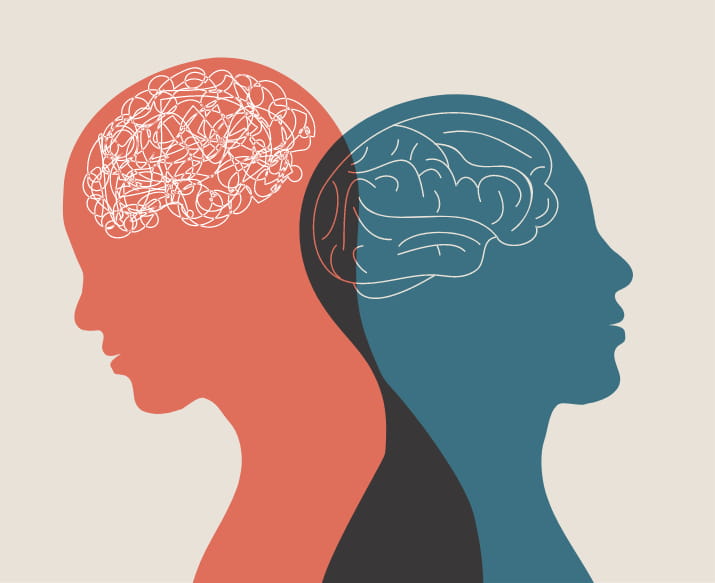Elementa Psychology Kew: Trusted Clinical Psychologists Near You
Elementa Psychology Kew: Trusted Clinical Psychologists Near You
Blog Article
Professional Psychologists Vs Psychiatrists: Key Differences You Should Know
The distinction in between professional psychologists and psychoanalysts is important for individuals looking for psychological health treatment, as each specialist offers special competence formed by their academic histories and therapy techniques. This distinction increases essential concerns regarding which specialist might be finest suited for numerous mental wellness needs.
Educational History
Several people looking for psychological health and wellness solutions might question the differences in instructional histories between professional psycho therapists and psychoanalysts (clinical psychologists kew Melbourne). The distinctions are crucial and substantial for understanding the roles each specialist plays in mental healthcare

On the other hand, psychoanalysts are medical doctors (M.D. or D.O.) who finish a four-year medical degree followed by a residency in psychiatry, which lasts an extra 4 years. Their clinical training furnishes them to recognize the organic facets of mental disorders, allowing them to suggest medications and provide a medical point of view on therapy.
These differing academic paths underscore the unique experience each specialist offers the field, forming their techniques to diagnosis, client, and treatment treatment (clinical psychologists kew Melbourne). Recognizing these differences is critical for people navigating the mental health system

Therapy Approaches
Varied therapy techniques identify the practices of medical psycho therapists and psychiatrists, mirroring their distinct training and locations of competence. Their emphasis is on emotional and emotional assessment, treatment, and the growth of coping approaches to resolve various psychological wellness conditions.
In comparison, psychiatrists are distinctly certified to diagnose and deal with psychological wellness problems with a mix of psychotherapy and pharmacotherapy. Their medical training enables them to prescribe drugs, which can be crucial for managing conditions such as schizophrenia, bipolar affective disorder, or severe clinical depression. Psychiatrists typically take a more biomedical approach, thinking about the organic, psychological, and social variables influencing an individual's psychological health and wellness.

Role in Mental Wellness Care
The roles of medical psychologists and psychoanalysts in mental healthcare are complementary, reflecting their distinct training and experience. Clinical psycho therapists mainly concentrate on the evaluation, diagnosis, and therapy of emotional concerns through different restorative techniques, consisting of cognitive-behavioral treatment (CBT), social therapy, and psychoeducation. Their training emphasizes understanding human actions, emotional functioning, and the restorative procedure, allowing them to supply evidence-based treatments customized to individual requirements.
On the other hand, psychoanalysts are medical physicians who specialize in the diagnosis and therapy of psychological health conditions, usually employing a biomedical method. They can prescribe drugs to take care of psychological symptoms and are trained look at here to take into consideration the physiological facets of mental wellness, such as neurobiology and pharmacology. This medical viewpoint permits psychoanalysts to resolve intricate instances that might call for a mix of drug management and psychiatric therapy.
With each other, pop over here clinical psycho therapists and psychiatrists produce an extensive mental healthcare framework, addressing both medical and emotional requirements. Partnership between these professionals guarantees that individuals receive holistic care, eventually enhancing therapy end results and improving the lifestyle for people experiencing mental health and wellness challenges.
Kinds Of Conditions Dealt With
While both clinical psycho therapists and psychiatrists resolve a vast array of psychological wellness disorders, their methods and locations of know-how commonly dictate the details conditions they treat. Clinical psycho therapists mostly concentrate on the assessment and therapy of emotional, behavioral, and cognitive conditions via psychiatric therapy. They frequently function with individuals experiencing anxiety conditions, depression, trauma (PTSD), obsessive-compulsive condition (OCD), and different personality disorders. Their healing techniques consist of cognitive-behavioral treatment, dialectical actions therapy, and other evidence-based methods.
On the other hand, psychoanalysts are clinical physicians who can prescribe medications and have actually specialized training in the biological facets of psychological health and wellness. They often take care of extra complex psychiatric problems that might call for pharmacological intervention, such as schizophrenia, bipolar disorder, serious clinical depression, and material use conditions. Psychoanalysts might incorporate medicine administration with psychotherapy but usually concentrate on the biochemical and medical elements of mental wellness issues.
Understanding these differences can aid people seek the proper care tailored to their particular psychological wellness requirements, guaranteeing they receive one of the most efficient treatment for their conditions.
Insurance Policy and Expense Considerations
Navigating insurance coverage and cost factors to consider is a vital facet for people seeking psychological health and wellness my link services from medical psychologists or psychoanalysts. Both occupations might approve numerous insurance coverage plans, yet the degree of insurance coverage can vary considerably. Psychiatrists, that typically suggest medication, might have various billing practices contrasted to clinical psycho therapists, that typically concentrate on psychotherapy.
Insurance repayment for psychological solutions could be a lot more favorable due to the clinical nature of their practice. Subsequently, clients may encounter higher deductibles or co-pays when consulting a psychiatrist. In contrast, scientific psycho therapists may provide solutions billed under mental wellness benefits, which might cause reduced out-of-pocket expenses, depending on the insurance firm's plan.
Furthermore, people should consider the frequency and period of therapy sessions when evaluating costs. While psychoanalysts might supply much shorter, medication-focused brows through, medical psychologists often take part in longer sessions devoted to therapeutic methods.
Inevitably, understanding the certain terms of one's insurance policy plan, including network availability, protection limits, and pre-authorization demands, is vital. Individuals are motivated to contact their insurance policy copyright to clear up benefits and explore choices for budget-friendly mental wellness care.
Verdict
In summary, the distinctions in between professional psycho therapists and psychiatrists are critical for notified decisions relating to psychological healthcare. Educational history, treatment methods, and functions in psychological wellness substantially vary between both professions. While professional psycho therapists primarily concentrate on psychiatric therapy, psychiatrists incorporate drug management right into their method. Understanding these differences boosts the capacity to select the suitable expert based upon private requirements, whether they involve therapy, drug, or a combination of both for ideal psychological health outcomes.
The difference between clinical psychologists and psychiatrists is vital for people looking for psychological health and wellness treatment, as each specialist offers special experience shaped by their educational histories and therapy techniques.The functions of scientific psychologists and psychiatrists in psychological health and wellness treatment are complementary, mirroring their unique training and knowledge.While both scientific psycho therapists and psychiatrists attend to a broad range of psychological wellness conditions, their approaches and areas of know-how frequently determine the details problems they deal with.Navigating insurance and expense factors to consider is a critical aspect for people seeking mental health services from clinical psychologists or psychoanalysts.In summary, the distinctions in between professional psychologists and psychoanalysts are crucial for educated decisions relating to psychological wellness treatment.
Report this page